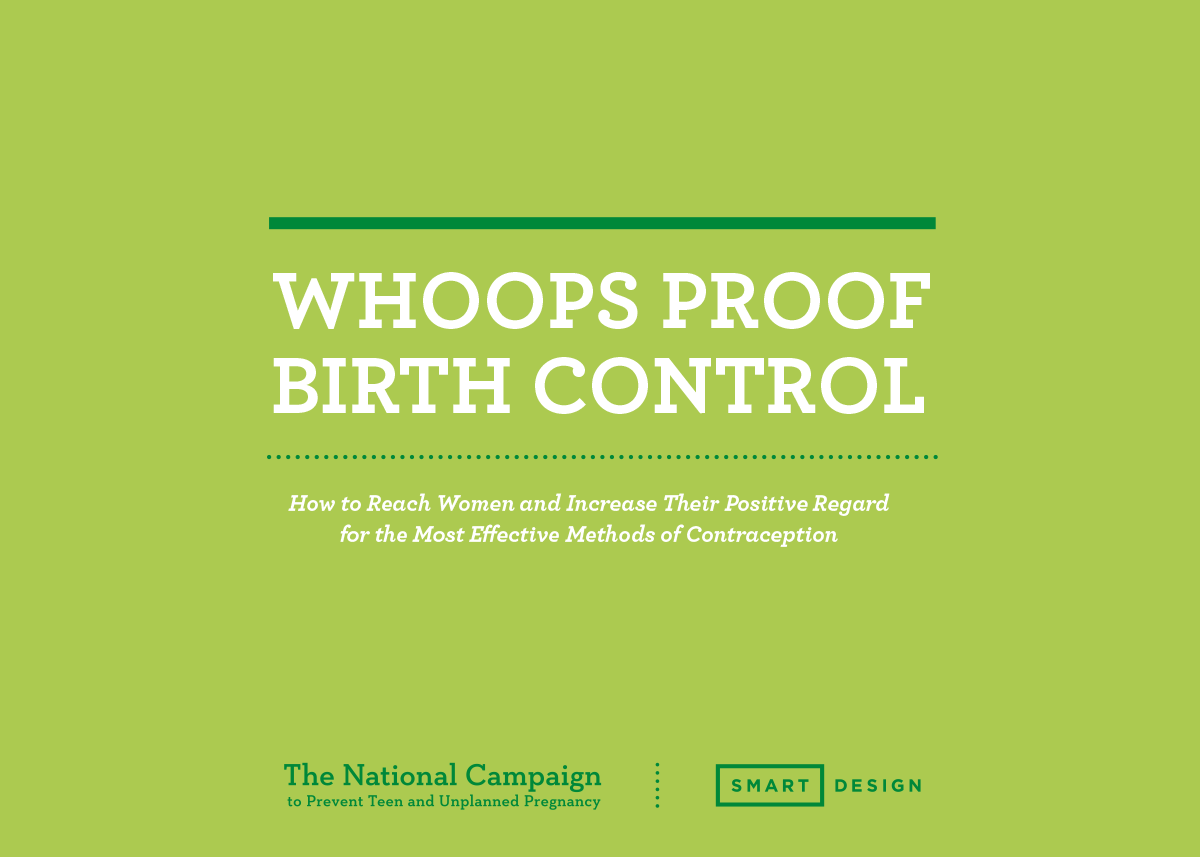Whoops Proof Birth Control

Improving communications about IUDs and the Implant—the words, the images, and the ideas—can have a significant positive impact on young women’s perception of these methods. Groundbreaking new research from Power to Design and Smart Design, a national leader in human-centered design and innovation, has uncovered nine key insights and opportunities for communicating more effectively with young women about these forms of birth control.
Given the effectiveness and ease of use, IUDs and the Implant are critical to helping women plan their pregnancies. Why? IUDs and Implants changes the default: Once in place, these methods of contraception change the default from having to take constant action to avoid and unplanned pregnancy (such as taking a pill every day) to having to take action to become pregnant (i.e., through removal of the device).
The use of highly effective, low-maintenance methods of birth control—IUDs and the Implant—are on the rise in the United States. Even so, awareness and use of these methods are low compared to other methods; in addition, uptake in the U.S. is significantly less than in many other countries with lower rates of teen and unplanned pregnancy.
Power to Decide and Smart Design have developed a series of ads focused on IUDs and the Implant. The ads are based on the research conducted with women age 18-29. If you are interested in learning more about the ads or potentially pilot-testing them in your community, please contact Bill Albert.
Suggested Citation(s)
Whoops Proof Birth Control: How to Reach Women and Increase Their Positive Regard for the Most Effective Methods of Contraception. (2015). Washington, DC: Power to Decide (formerly The National Campaign to Prevent Teen and Unplanned Pregnancy).

